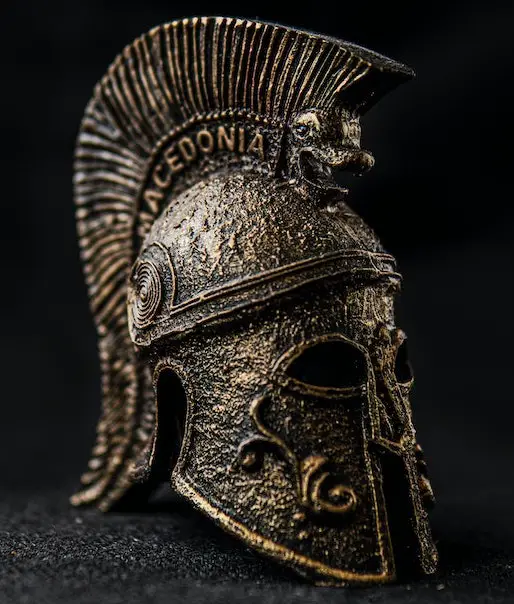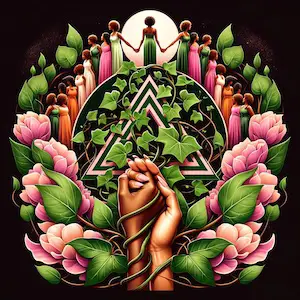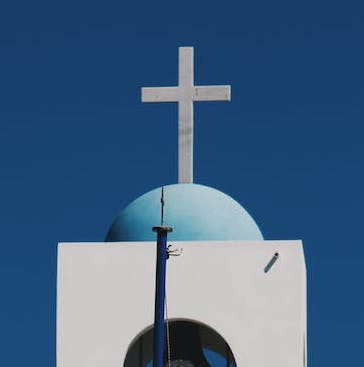At the heart of this warrior culture lies the enigmatic Spartan chants, a powerful and inspiring battle cry that served to unify and motivate these formidable soldiers. While the specific words and phrases used in these chants have been lost to time, we can still explore their potential impact and significance by examining the values and beliefs that underpinned Spartan society.
In this article, we will delve into the world of Spartan chants by providing fictional examples inspired by their warrior culture, shedding light on the possible purposes and effects of these captivating expressions of unity and determination. Join us as we journey back to ancient Sparta and explore the captivating legacy of the Spartan chant.

Table of Contents
Introduction
When we think of the mighty Spartans, we often envision fierce warriors, clad in bronze armor, fearlessly charging into battle. But, what we may not immediately consider is the powerful role of the Spartan chant in their military success. This ancient battle cry, used by one of the most formidable fighting forces in history, not only embodied their indomitable spirit but also played a vital role in their training, battle tactics, and identity. Let’s take a closer look at the origins of the Spartan chant and how it has permeated modern culture.
Historical Origins
Ancient Sparta
The city-state of Sparta, located in present-day Greece, was known for its highly disciplined and effective military force. In fact, Spartan society was centered around military training and a strict code of honor, which emphasized loyalty, discipline, and bravery.
Military Culture
Spartan culture revolved around its warrior class, who were trained from an early age to become skilled and fearsome soldiers. Spartans were expected to be strong, self-sufficient, and fiercely loyal to their comrades in arms. Their warrior ethos was the backbone of their society and a key component of their military success.
Spartan Warrior Society
The Spartan military was an elite force, composed of highly-trained and disciplined warriors. They were known for their unyielding bravery in the face of adversity and their unwavering commitment to their fellow soldiers. The Spartan chant was one way that these warriors demonstrated their unity, strength, and determination.
The Spartan Chant
Purpose
The Spartan chant served multiple purposes. It helped to build camaraderie and unity among the soldiers, while also instilling fear in their enemies. Chanting in unison allowed them to synchronize their movements, making their approach more intimidating and effective.
Contents
The contents of the Spartan chant often revolved around their warrior ethos and battlefield prowess. Phrases like “With our shields or on them!” were common, emphasizing their determination to either return victoriously or die in battle.
Variations
There were likely numerous variations of Spartan chants, each tailored to specific situations, battles, or individual units. These variations allowed the Spartans to adapt their chants to the context of their current situation, making them more relevant and impactful.
Chants in Training
Discipline
Incorporating the Spartan chant into their rigorous training regimen served to instill discipline and a sense of belonging among the soldiers. The repetitive nature of the chants helped to reinforce their warrior values and ethos, creating a strong bond among the soldiers that carried over into battle.
Motivation
The chant also provided motivation during grueling training exercises. By focusing on their shared identity and purpose, the soldiers were able to push themselves harder and achieve greater physical and mental endurance.
Unity and Brotherhood
The act of chanting together in unison fostered a sense of unity and brotherhood among the Spartan soldiers. This strong bond allowed them to operate as a cohesive unit on the battlefield, making them a formidable force.
Types of Spartan Chants
Paean with Examples
The paean was a type of hymn or song dedicated to the gods, particularly Apollo, the god of music and poetry. It was typically performed by a chorus and accompanied by instruments such as the lyre or the aulos (a double-reed pipe). Paeans were often sung during religious ceremonies, processions, or as a prelude to battle, invoking the gods’ protection and favor.
An example of a paean is the “First Delphic Hymn,” which was dedicated to the god Apollo. It was composed around 128 BC by Athenian musician Limenius. Here is a snippet of the lyrics in ancient Greek, followed by an English translation:
Ancient Greek:
Ἀπόλλωνος ἀγυιήταο
παιᾶνα τὸν πρῶτον ἁγιστὰν
ἁρμονίαν προσοίσομεν·
English translation:
To Apollo, the leader of the procession,
We will offer the first and most sacred
Harmony of this paean.
Another example of a paean is the “Second Delphic Hymn,” composed around 128 BC by Athenaeus. It is also dedicated to the god Apollo. Here is a snippet of the lyrics in ancient Greek, followed by an English translation:
Ancient Greek:
Ἀπόλλωνος χρυσάορος
ἀκτὰν ἐπὶ προδέκαθε κοῦροι
Δελφοί, περίκλυτον ἄλσος.
English translation:
To Apollo of the golden sword,
Delphian youths on the shore stand before,
The famous sacred grove.
Skolion with Examples
Skolia were more informal songs, usually performed at symposiums or social gatherings. They often celebrated victories, recounted heroic deeds, or poked fun at rivals. These songs were typically sung in a more relaxed setting, with participants taking turns singing verses and improvising new lines.
An example of a skolion is the “Song of Seikilos,” which is the oldest complete musical composition found to date. The song was inscribed on a tombstone, dating back to the 1st or 2nd century AD. Here are the lyrics in ancient Greek and their English translation:
Ancient Greek:
Ὅσον ζῇς φαίνου
μηδὲν ὅλως σὺ λυποῦ
πρὸς ὀλίγον ἔστι τὸ ζῆν
τὸ τέλος ὁ χρόνος ἀπαιτεῖ.
English translation:
While you live, shine,
Have no grief at all;
Life exists only for a short while,
And time demands its toll.
Epitaphios with Examples
The epitaphios was a dirge or funeral lament sung in honor of fallen warriors. These somber and emotional chants were meant to express grief and pay tribute to the bravery and sacrifice of the deceased. Performed by a chorus, they served as a powerful reminder of the high price of war and the importance of honoring the dead.
As for an epitaphios, we have the “Lament for Bion,” an ancient Greek poem attributed to the poet Moschus. The poem mourns the death of the poet Bion. Below is an excerpt from the poem in ancient Greek and its English translation:
Ancient Greek:
Τέθνηκε Βίων· τίς δ’ οὔ θανεῖται;
Βίων οὐκέτ’ ἐπιχθονίοισιν,
ὃς τὰ Πίερόθεν λιγυρὰ Μούσαν
ἐκέλευεν ἁδύμελα συρίττειν.
English translation:
Bion is dead; who shall not die?
Bion is no more among the living,
He who bade the sweet-toned Muses
Sing with the clear Pierian reed.
An example of an epitaphios is the “Epitaph of Simonides” by the ancient Greek poet Simonides. The poem is dedicated to the warriors who fell during the Battle of Thermopylae. Here is a snippet of the poem in ancient Greek and its English translation:
Ancient Greek:
Ὦ ξεῖν’, ἀγγέλλειν Λακεδαιμονίοις ὅτι τῇδε
κείμεθα, τοῖς κείνων ῥήμασι πειθόμενοι.
English translation:
Stranger, tell the Lacedaemonians that here,
We lie, obedient to their commands.
20 Spartan Chants
- “With our shields or on them!” – A declaration that the warriors would either return victorious or die in battle, as fallen warriors were carried home on their shields.
- “Sparta, we fight for you!” – A chant emphasizing the loyalty of the soldiers to their city-state and their willingness to sacrifice themselves for its survival.
- “Forward, brothers, to glory!” – A rallying cry encouraging the soldiers to push forward and embrace the honor of battle.
- “Strength and honor, united as one!” – A reminder of the Spartan values of strength, courage, and unity that define their warrior society.
- “Fear none, conquer all!” – A bold statement of the Spartans’ fearlessness and determination to triumph over their enemies.
- “In unity, we stand, invincible!” – A proclamation of the power of unity, acknowledging that the Spartans are strongest when they fight together as a cohesive unit.
- “By our spears, we shall prevail!” – A declaration of the Spartans’ faith in their weaponry and their skill as warriors.
- “No retreat, no surrender, victory or death!” – A chant emphasizing the Spartans’ unwavering resolve to face any challenge and never back down from a fight.
- “Brothers in arms, bound by blood and honor!” – A reminder of the deep bonds of loyalty and brotherhood that connected the Spartan warriors and made them an unstoppable force.
- “Sparta’s sons, hear our battle cry!” – A call to arms, inspiring the soldiers to raise their voices in unison and intimidate their enemies with the power of their collective spirit.
- “Unbreakable, we march as one!” – A statement emphasizing the unwavering unity and determination of the Spartan soldiers.
- “For Sparta, for glory, we stand our ground!” – A chant expressing the Spartans’ commitment to defend their homeland and pursue glory in battle.
- “In battle, we find our honor and pride!” – A reminder that the Spartans took great pride in their martial prowess and battlefield achievements.
- “Spartan blood runs deep, courage flows within!” – A proclamation of the innate bravery and fearlessness that defined the Spartan warriors.
- “Our enemies shall tremble, our spears shall pierce!” – A declaration of the Spartans’ confidence in their ability to overcome their adversaries.
- “Bound by duty, forged in battle!” – A chant highlighting the importance of honor and loyalty in the Spartan warrior society.
- “Sparta’s might, our shield and spear!” – A statement of the Spartans’ unwavering faith in their city-state and the power it bestowed upon them.
- “Victory is our destiny, conquest our fate!” – A bold expression of the Spartans’ belief in their preordained success on the battlefield.
- “Together we rise, unbeatable as one!” – A chant emphasizing the importance of unity and cohesion among the Spartan soldiers.
- “In the face of death, we fear no foe!” – A reminder of the Spartans’ legendary fearlessness and their willingness to confront any challenge, even at the cost of their lives.
Chants in Battle
Intimidation
The Spartan chant was designed to strike fear into the hearts of their enemies. The sound of hundreds of warriors chanting in unison would have been an intimidating sight, projecting their ferocity and resolve.
Morale and Confidence
The chant also served to boost the morale and confidence of the Spartan soldiers. By chanting together, they reminded themselves of their shared purpose, skill, and strength, giving them the mental fortitude to face their enemies with unwavering determination.
Communication
On the battlefield, the chant functioned as a form of communication, allowing the soldiers to coordinate their movements and tactics. The rhythm and cadence of the chant helped to synchronize their actions, making them more effective as a cohesive fighting force.
Modern Adaptations
Sports Teams
In modern times, the spirit of the Spartan chant has been adopted by sports teams as a means to inspire unity, motivation, and team spirit. By incorporating elements of the Spartan ethos into their team chants, athletes can channel the same resilience and determination that defined the ancient warriors.
Military Units
Some military units have also adopted variations of the Spartan chant, using it to build camaraderie and instill the same warrior ethos that made the ancient Spartans so effective. This tradition helps to foster discipline, motivation, and unity among modern soldiers.
Popular Culture
The Spartan chant has also made its way into popular culture, with depictions in movies, books, and television shows. These portrayals often draw on the mystique of the ancient Spartans and their warrior culture, using the chant to create dramatic and compelling narratives.
Conclusion
The Spartan chant, born from the warrior culture of ancient Sparta, remains an enduring symbol of unity, discipline, and bravery. Its legacy can be seen in modern sports teams, military units, and popular culture, illustrating the timeless appeal of the Spartan warrior ethos. By understanding the origins and significance of the Spartan chant, we can appreciate its enduring impact and the powerful message it conveys.
Spartan Chants Frequently Asked Questions
What was the purpose of the Spartan chants?
The Spartan chants served multiple purposes, including building camaraderie and unity, instilling fear in enemies, boosting morale and confidence, and facilitating communication on the battlefield.
Did other ancient Greek city-states have their own unique chants?
Yes, other ancient Greek city states had their own unique chants and songs that reflected their culture, history, and religious beliefs. Some of these chants were specific to local deities or regional events, while others celebrated universal themes like love, war, and the human experience.
How were Spartan chants passed down through generations?
Spartan chants, like many ancient songs and poems, were predominantly passed down orally. Skilled musicians and singers would memorize the chants and teach them to their apprentices or students. This oral tradition helped preserve the chants for generations, though some were inevitably lost or altered over time.
See Related posts

Gregorian Christmas Chants

Love Spell Chants

Best Softball Chants for U12

AKA Sorority Chants

Argentina Football Chants

Short Chants and Cheers

Alabama Football Chants

Everything to Know About African Chants

